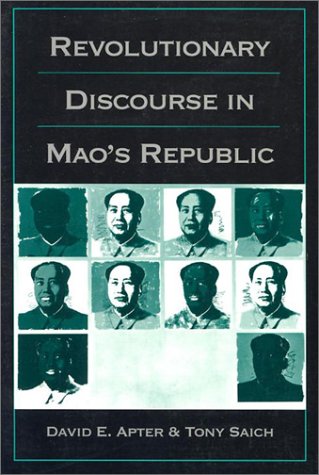What does the Chinese Communist revolution teach us about the relationship between political discourse and real experiences and events? This interpretation of the revolutionary process in China uses empirical evidence as well as concepts from contemporary cultural studies to probe this significant question. David Apter and Tony Saich base their analysis on recently available primary sources on party history, English- and Chinese-language accounts of the Long March and Yan'an period, and interviews with veterans and their relatives. The authors demonstrate how Yan'an, during the eventful years from 1937 to 1945, was transformed from a military base to the moral centre of the revolution. There Mao, as an agent for higher truths, fashioned a following whose ambition was to change the world - at least in part by reinterpreting it. Embedded in their discourse were themes of loss and recovery, reenactment, retrieval and projection, narratives and texts, myths and logic, leading to the formation of symbolic capital in the absence of the economic kind. In the end, the authors explain, the revolutionary simulacrum of Yan'an was drained of content to become only a ritualized expression.
And the surviving top Yan'an disciples were largely responsible for sending troops into Tiananmen Square, crushing what they feared would be a repudiation of all they stood for. Written by an eminent political theorist well seasoned in comparative development and an internationally recognized China scholar, and abounding in new approaches to central issues, this analysis should be of interest to social theorists and China scholars alike.
- ISBN10 0674767799
- ISBN13 9780674767799
- Publish Date 4 October 1994
- Publish Status Out of Print
- Out of Print 11 July 2008
- Publish Country US
- Imprint Harvard University Press
- Format Hardcover
- Pages 416
- Language English
